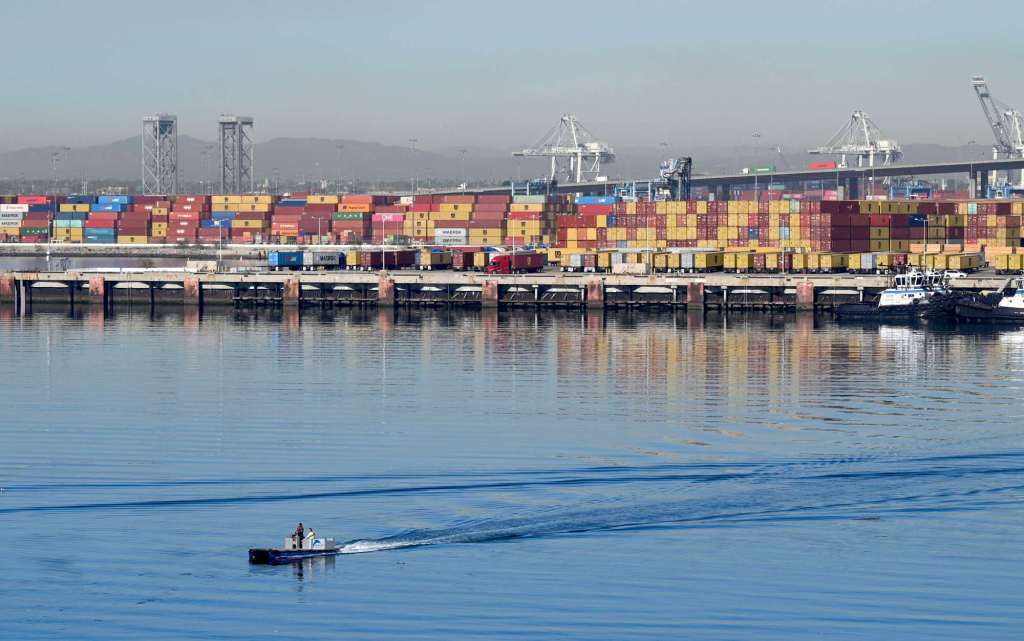Cargo continued dropping in February at both the ports of Los Angeles and Long Beach as an uncertain economy and concerns over prolonged labor contract negotiations take their toll.
Warehouses remain full as goods sit with retailers waiting for a hoped-for uptick in consumer confidence.
“February declines were exacerbated by an overall slowdown in global trade, extended Lunar New Year holiday closures in Asia, overstocked warehouses and a shift away from the West Coast ports,” Port of Los Angeles Executive Director Gene Seroka said in his monthly virtual press conference on Friday, March 17.
While more cargo is expected to move across the local docks in March, Seroka said, “volume will likely remain lighter than average in the first half of 2023.”
The Port of L.A. processed 487,846 twenty-foot equivalent units — or TEUs, the industry’s standard of measurement — in February, a 43% decrease from the same month last year. The second month of 2022 was POLA’s busiest February of all time.
The neighboring Port of Long Beach, meanwhile, outpaced its larger neighbor last month, moving 543,675 TEUs, though that was still down 31.7% from February 2022, which, like LA, was that port’s busiest February on record.
“Trade continues to normalize following the record-breaking cargo numbers we saw at the start of last year,” said Port of Long Beach Executive Director Mario Cordero. “We are inviting in infrastructure projects that will keep us competitive as we collaborate with industry stakeholders to focus on our trade volume.”
Some signs are similar to patterns seen in the early days of the pandemic, Seroka said, which was marked by consumers hunkering down as stores and schools began to close.
Consumers followed that with an online spending spree that began in the second half of 2020 and only recently began to slow and stall as the pinch of inflation and other factors began to hit, Seroka said.
A “spring” labor contract deal is desperately…
Read the full article here







